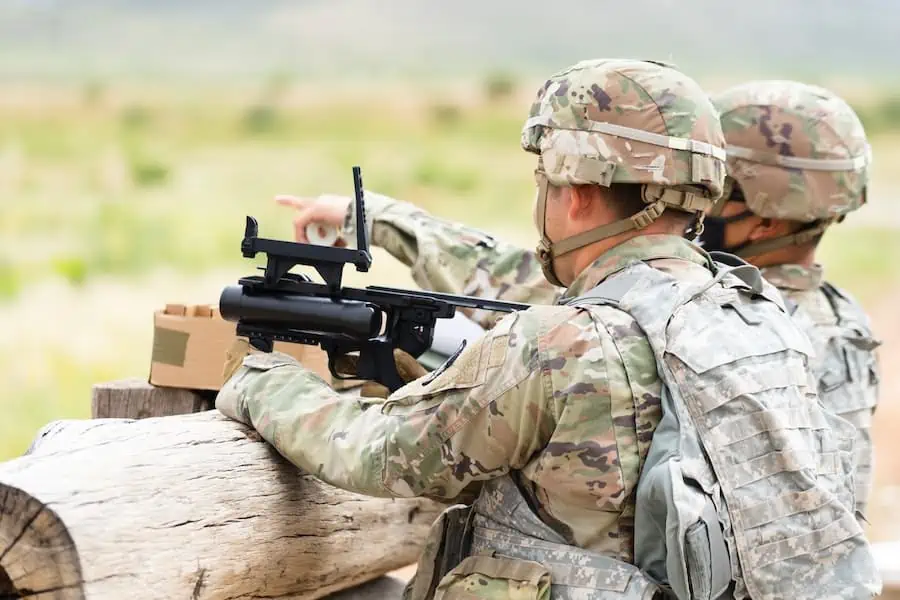There is something yet awe-inspiring about the sight of military personnel in uniform. The badges, medals, and thin ribbons adorning their chests hint at a world of honor, courage, and relentless dedication.
This article takes a deep dive into the formidable training regimes, complex responsibilities, and ethical obligations military personnel shoulder to earn their stripes.
Recruitment And Basic Training
Becoming military personnel begins with recruitment, an intensive process that aims to select the most suitable candidates. These individuals must display physical prowess, mental toughness, and emotional resilience.
Following recruitment, they undergo basic training or boot camp, typically eight to 12 weeks. During this time, recruits learn fundamental military skills, including marksmanship, tactical knowledge, physical fitness, and discipline.
In addition, they are introduced to the military’s ethos and values, such as honor, loyalty, and self-sacrifice. This period instills discipline and prepares recruits for military life’s physical and mental challenges.
Advanced And Specialized Training
After basic training, military personnel progress to advanced training in specific roles, including infantry, aviation, engineering, medical, or intelligence. This phase can take several months or even years, depending on the complexity of the role.
For instance, special operations forces such as Navy SEALS or Army Rangers undergo extensive training in various environments (air, land, and sea) and situations (counter-terrorism, surveillance).
Military personnel also continually enhance skills throughout their careers to stay abreast of technological advancements and changing warfare strategies.
Duties And Operations
A core responsibility of military personnel is to perform duties and operations that ensure the nation’s security. This could range from local law enforcement and disaster response to participating in global peacekeeping missions and combat operations.
Military personnel also use reconnaissance and intelligence collection to inform the nation about potential threats. Their work is inherently risky and demands readiness to operate in dangerous, high-stress environments.
Leadership And Teamwork
Military personnel often take on leadership roles early in their careers, managing and motivating their team members toward a common goal. Effective leadership is paramount to success in military operations, and personnel are trained in decision-making, strategy, communication, and managing crisis situations.
At the same time, the military emphasizes the importance of teamwork. Military personnel must work together effectively, often in tight-knit units where each member relies on others for survival and mission accomplishment.
Conduct And Ethics
Finally, military personnel are expected to uphold the highest standards of conduct and ethics. This involves adherence to the military code of conduct, emphasizing values such as honor, integrity, and respect. They must also abide by the rules of warfare, including protecting non-combatants and treating prisoners of war humanely.
Violations can result in serious consequences, including legal action. Military personnel are also ambassadors of their country when deployed overseas, and their conduct can influence the perception of their nation abroad.
Mental And Emotional Resilience
One often overlooked aspect of military service is the mental and emotional resilience required. Military personnel often serve in high-stress environments that can have significant psychological impacts.
They undergo training designed to enhance their stress management and mental fortitude to prepare for this. This includes coping strategies for anxiety, fear, and trauma. Additionally, the military offers resources such as counseling and mental health services to help personnel navigate the emotional challenges of their roles.
Continual Learning And Professional Development
The military is not stagnant; it evolves continuously in response to geopolitical changes and technological advancements. As such, military personnel must be committed to lifelong learning and professional development.
This involves continually updating tactical training, familiarizing with the latest equipment and technologies, and studying the changing face of warfare and global security issues. Military personnel are often encouraged to pursue further education, with many armed services offering opportunities for tertiary education and skills training.
Community Service And Civic Responsibility
Beyond the battlefield, military personnel plays a crucial role in their communities. They participate in various community service activities, including disaster relief, humanitarian aid, and public education programs. They serve as role models, fostering civic responsibility, patriotism, and respect for the military’s values.
This dual role — a warrior on the battlefield and a community leader — embodies military personnel’s multifaceted responsibilities and reinforces their significant contribution to society.
The Essence Of Service: Unveiling The Roles Of Military Personnel
Military personnel embody the noblest values of sacrifice, honor, and bravery. Their selflessness and commitment to the greater good serve as an inspiration to us all.
They remind us that protecting our shared values and preserving peace requires courage, resilience, and a steadfast belief in a better future.








